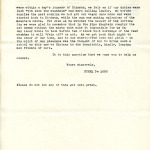Pine Mountain Settlement School
Series 17: PUBLICATIONS PMSS – Publicity and Fundraising
“Dear Friend” Letter, c. 1911, Hindman
Written by Ethel de Long
![DEAR FRIEND LETTERS 1911 [Hindman undated]](https://pinemountainsettlement.net/wp-content/uploads/2014/05/misc_exhibit_011-1024x670.jpg)
Spring Wagon, harnessed. [misc_exhibit_011.jpg]
TAGS: Ethel de Long, Lewis Lyttle, Stephen Guilford, Mr. and Mrs. Henry Singleton, Hindman Settlement, W.C.T.U. Settlement, Troublesome Creek, Betty’s Troublesome, Carr’s Fork, Bull Creek, Leatherwood, Cutshin, Greasy Creek, Defeated, Aunt Judy Turner, Turner family
DEAR FRIEND LETTERS 1911 [Hindman undated]
Synopsis
Page 01. [delong_ltrs_annual_001.jpg]
After receipt of a letter from the Baptist preacher [Rev. Lewis Lyttle] about needs in Pine Mountain country, both Katherine Pettit and Ethel de Long wrote a “Dear Friend” letter, with the inside address of Hindman, Knott County, Kentucky. Ethel de Long’s letter describes in detail the same trip taken by Katherine Pettit and Stephen Guilford, Ethel and Harriet Butler, that she planned at once to visit the area as part of the search for a school location. In a great amount of detail she describes this trip, the people she meets along the way, and the evidence of a need for a school.
The Hindman group started out on a November morning in a wagon driven by Guilford, a Hindman student, and traveled from one creek to another. When they stopped at the gap to rest the horses and eat their dinner, a neighbor came with horse feed and told stories about his children and their meager education because they lived so far from a school. She describes the homes along Bull Creek as “miserable.”
Page 02. [delong_ltrs_annual_002.jpg]
At the North Fork of the Kentucky River, the road was being graded and blasted for the new railroad. They stayed overnight at Mr. and Mrs. Henry Singleton‘s home, where the couple begged for a school in their area.
The next morning they left the wagon behind and rode horses on the trail to Greasy, where they first saw Pine Mountain. De Long describes the beauty of the “primeval” forest they travel through, often seeing homes filled with children that remind her of the need for a school.
Page 03. [delong_ltrs_annual_003.jpg]
Page 04. [delong_ltrs_annual_004.jpg]
The travelers spend 5 days with Aunt Judy Turner and her 8 sons and 1 daughter who lived nearby. De Long, impressed at the devotion the children showed their parents, listened to stories Aunt Judy told of her girlhood.
Page 05. [delong_ltrs_annual_005.jpg]
Page 06. [delong_ltrs_annual_006.jpg]
Noting that the Turner family were moonshine drinkers, de Long concludes that the great number of drinkers is due to poverty of a country life with no school.
De Long joined a meeting, led by Hiram Turner, where she met other mountain people eager for a school.
At a second meeting about getting a school, a Baptist preacher also spoke.
Page 07. [delong_ltrs_annual_007.jpg]
De Long worried about getting enough land at the mouth of Big Laurel for the large number of children. The group then traveled to the headwaters of Greasy to see the site suggested by Mr. [Lewis] Lyttle, finding the site so appropriate, they daydreamed about their plans for it. Later, Uncle William Creech offered 110 acres and help to build the school.
Page 08. [delong_ltrs_annual_008.jpg]
De Long was led by William and Christopher Columbus Creech to the top of the mountain, a trip through woods that de Long describes in detail. That evening Uncle William related the history of his family and explained his values.
Page 09. [delong_ltrs_annual_009.jpg]
Page 10. [delong_ltrs_annual_010.jpg]
De Long admired the Creeches and felt it would be good to have the school near them. Returning home, they stayed overnight with Mrs. Gib Lewis where Mr. Lyttle joined them to guide them back to Mrs. Singleton’s home.
Page 11. [delong_ltrs_annual_011.jpg]
Now one day’s journey from Hindman, they headed home despite Mrs. Singleton’s invitation to stay. Returning to their 95 boys and girls at Hindman, they wondered how they could build a school such as Hindman’s for the new friends they met on their travels. De Long asks for help with this question from the recipient of the letter. Signed by Ethel de Long with a postscript that this letter does not “get into print,” probably fearing that their speculation would derail the efforts to start a new school and also wishing to maintain the privacy of the families the group met along their journey.
GALLERY
- 001 Dear Friend Letter from Ethel De Long, c. 1911. Hindman, Knott County, KY. Page 01. [delong_ltrs_annual_001.jpg]
- 002 Dear Friend Letter from Ethel De Long, c. 1911. Hindman, Knott County, KY. Page 02. [delong_ltrs_annual_002.jpg]
- 003 Dear Friend Letter from Ethel De Long, c. 1911. Hindman, Knott County, KY. Page 03. [delong_ltrs_annual_003.jpg]
- 004 Dear Friend Letter from Ethel De Long, c. 1911. Hindman, Knott County, KY. Page 04. [delong_ltrs_annual_004.jpg]
- 005 Dear Friend Letter from Ethel De Long, c. 1911. Hindman, Knott County, KY. Page 05. [delong_ltrs_annual_005.jpg]
- 006 Dear Friend Letter from Ethel De Long, c. 1911. Hindman, Knott County, KY. Page 06. [delong_ltrs_annual_006.jpg]
- 007 Dear Friend Letter from Ethel De Long, c. 1911. Hindman, Knott County, KY. Page 07. [delong_ltrs_annual_007.jpg]
- 008 Dear Friend Letter from Ethel De Long, c. 1911. Hindman, Knott County, KY. Page 08. [delong_ltrs_annual_008.jpg]
- 009 Dear Friend Letter from Ethel De Long, c. 1911. Hindman, Knott County, KY. Page 09. [delong_ltrs_annual_009.jpg]
- 010 Dear Friend Letter from Ethel De Long, c. 1911. Hindman, Knott County, KY. Page 10. [delong_ltrs_annual_010.jpg]
- 011 Dear Friend Letter from Ethel De Long, c. 1911. Hindman, Knott County, KY. Page 11. [delong_ltrs_annual_011.jpg]
FULL TRANSCRIPTION: DEAR FRIEND LETTERS 1911 [Hindman undated]
[NOTE: The text has been slightly edited for readability.]
THE INVITATION FROM LEWIS LYTTLE
Page 01. [delong_ltrs_annual_001.jpg]
Hindman, Knott County, Kentucky
My dear Friend:
When the enclosed letter came from a mountain Baptist preacher [Lewis Lyttle] telling of the Pine Mountain country and its needs we planned at once to make a trip over there and investigate for ourselves. The appeal reminded Miss Pettit of the May day ten years ago when she stood on top of Pine Mountain and thought that she would some day try to start a school on Greasy, where she heard there were so many children growing up far away from good schools. We had been investigating other localities with reference to the school we wanted to start in the country and as this locality was so near the border of Leslie County, which is the poorest and most remote county in Kentucky, we felt sure that we must see it before we decided on a location.
We started out at half past five on the first frosty morning in November, with a school boy to drive us, very fittingly, the boy who had made the wagon in which we were riding. Surely no one ever had a more beautiful driving trip than we; in a sense, a walking trip for we were out of the wagon as much as we were in it. Up on the right-hand fork of Troublesome Creek to Trace’s Fork, then across the mountain to Betty’s Troublesome, down the bed of that stream to Carr, and down Carr to Defeated Branch. As we went up that picturesque stream, with no wagon road in sight, we thought of the two Revolutionary soldiers whose graves we knew were on the mountain above us. When the horses had pulled the wagon four miles over the stones of that branch they needed rest, so we decided to eat our dinner at the gap. A man from the little cabin there came at once with feed for the horses and was eager to talk all the hour we rested there about his children and our school, even telling what books his children were in and how much time they had to miss because they were so far away from school. Just beyond the gap,there was a splendid farm on top of the mountain, which seemed an ideal place for a school, as so many streams head up there.
Then we went on down Bull Creek seven miles to the river. We were glad we did not have to stay all night in any of the miserable little homes on that creek; indeed, it was only a few nights after we passed through that the Sheriff of Letcher County was killed there by a boy whose mother we talked to on the way down the mountain. A post office inspector told us he had been obliged to stay all night in one of those homes. When he stopped at dark, his horse worn out, he did not know where the man put his horse, but he himself was taken into a one-roomed house. Around the fire sat the man’s wife and their eight children, with a neighbor woman and her five who had come to make a visit. As the inspector and his guide sat by the cheering fire he was troubled all the time to know how they were…
Page 02. [delong_ltrs_annual_002.jpg]
2
…going to fare through the night. But he need not have worried, for his host was a general. At last he said, “Wal, strangers, hit’s laying down time — you and that man can lay down on that bed.” No sooner were they in bed than the “general” put three children at their feet, and proceeded in like manner with the other beds, until all eighteen were stowed away in the little room. What the inspector liked best about it was that the host made no apology, but gave his best hospitality in the most gracious manner.
At the mouth of Bull Creek we came to the North Fork of the Kentucky River, where we found the road quite bewildering because of the grading and blasting for the new railroad. Then up Leatherwood five miles by moonlight to Mr. Henry Singleton‘s; it would not be possible to find a more comfortable place than this to stay in all the mountains. Mr. and Mrs. Singleton had heard that we were going to have another school and begged us to have it there, where some of the girls were “rude and gayly.”
LEATHERWOOD AND FIRST GLIMPSE OF PINE MOUNTAIN
Next morning we left the wagon at the lead of Leatherwood, and taking our “plunder” in pokes on the horses’ backs started on the trail up Old House Branch across the divide to what the Leatherwood people call “that wild and benighted country” on the waters of Greasy. The people there wondered that we were willing to take that hard trip, which many of them had never made, because it was a rough way. At the gap we caught our first glimpse of Pine Mountain. The rain began as we started down Big Laurel, picking our way carefully around huge stumps and over great fallen trees. This was primeval forest and the splendid thickets of laurel and rhododendrons showed that the “company’s” ax had not begun to cut there yet. Nowhere in all the mountains had we seen such trees, yellow poplars and pines untouched. Wonderful waterfalls, cascades, moss-covered boulders, made this the wildest, most secluded stream we had ever seen! As we were enjoying the grey rain and the wet laurel leaves and singing streams, we were constantly reminded of the need for a school, for in the most unexpected places we would come suddenly on a little home, filled with children. Once some children came to a spring to watch us drink. One little boy, seven years old, had a fine head, splendid eyes, and a great deal of intelligence in his face. He was eager and asked many questions, but he said he was a bad little boy and “cussed like hell” and then volunteered an exhibition of the many “cuss words” he knew. While we were trying to recover from our surprise, he said, “But I wouldn’t cuss like that if I had a school to go to; thar haint one within four miles and I don’t get to go to hit.”
BIG LAUREL ON GREASY CREEK AND TURNER FAMILY
Just at dusk we came to Aunt Judy Turner‘s at the mouth of Big Laurel on Greasy. She was looking for us, and…
![DEAR FRIEND LETTERS 1911 [Hindman undated]](https://pinemountainsettlement.net/wp-content/uploads/2015/02/roe_049b.jpg)
0049b P. Roettinger Album. “Aunt Judy Turner and the ‘pied nag.'” [roe.049b.jpg]
3
…told us to “come in and bring yo’r plunder.” This was the beginning of five most interesting days, among an ingenuous, “free-hearted,” simple people who have been absolutely untouched by the outside world. Aunt Judy’s eight sons and her one daughter live around about her, four of them within hollerin’ distance. The devotion of those rough, hard-drinking men to the gentle, shrewd little woman who is queen of them all, was rare to see. Hiram, from a mile down Greasy, had brought up a bowl of butter for her supper; Lewis, who had made a trip to Harlan Town, came home with a box of sweetmeats for her — and never was mother forgotten. She seldom takes a meal by herself, though none of her children live with her. In the three days we were there, we came to wonder at the marvelous way in which the little old lady ruled her sons; with her gentle way she could get anything out of them she wanted to know. She has had a great experience of life, and has lived every minute of it. Her girlhood belonged to a remote past, when men were trappers rather than farmers. The four families who settled Greasy came to that country because they were mighty hunters: as she told tales of bear killing and wolf hunting it seemed impossible that the little old lady who has not yet lost her beauty and charm should, as a young wife, have thrown out to the dogs the venison hams because “we got so tired of them.”
One tale that she told of her girlhood showed that behind her charm there was the force that could rule a difficult family such as hers had been. Sometimes they had to stay up late at night to help their mother who often had to spin until the chickens crowed, to get her family clothed. One night when her mother was carding wool and boiling soap in the great fire-place, she sent eleven-year-old Judy with her older sister for brush to burn in the fire place and make a light so that she could see to card. As the two little girls went to the woods they heard their father’s dogs barking on the other side of the creek, and knew that they had treed a ‘coon or ‘possum. Forgetting the brush, they jumped on an unbridled and unsaddled nag that was grazing nearby and started across the creek, which was nearly past fording.
“We might a’ been swept off — the water was so swift thar under the cliff — an’ nobody never would a’ knowed what had become of us. We kep’ right on and made the horse climb a powerful rough road to the top of the mountain. We could see by the moonshine that thar was more ‘en one ‘coon in the tree, so sister stayed to watch while I went back to get paw jest as fast as I could put out. He had three right severe dogs that we brung back with us. Paw used every shot in his gun but missed them ‘coons. By that time he was mad; he pulled off his coat and climbed the tree an’ shook ’em out an’ the dogs got ’em. They was three ‘coons.”
It was charming to hear her tell of her first railroad ride, taken only a few weeks before. She liked the train, but “ef I wanted to go a right smart journey I’d rather go by nag.” Her story of her management of a drunken son-in-law was…
Page 04. [delong_ltrs_annual_004.jpg]
4
…full of fire. “You black dog,” said she to him one night when everyone else was afraid to speak to him, “ef I could turn back twenty-five years I’d wear the devil out of ye!”
She married a man who was evidently as daring and free as she. One day their son Hiram, [Hiram Turner] a picturesque fellow with long mustachios, told us of the time when his father sold the poplar off his land. He and his father went over hundreds of acres with one of the company’s agents, and marked the trees, each one picking out five or six hundred a day. They all brought six dollars apiece, whatever their girth. Then the company, which did all the work of chopping and hauling, paid his father $17,499.00 in two checks. Father and son rode off with saddle pockets to fetch the money home to Pineville, 35 miles away where there was a bank. But the bank did not have the cash on hand to pay the checks, so they had to wait over a night until some could be brought in; for the father, a bold, hard-drinking, high tempered man, put no faith in banks and would have his money in cash. He stowed it away in the saddle pockets, more than $2,000.00 of it in gold, the rest in greenbacks, and the two men rode back the 35 miles, each one with his gun cocked. People knew they were going to bring back a large amount and had threatened to rob them, but as Hiram said, “They’d a’ had to be a heap gamer than we — I’d a’ shot anybody that was a little sassy to paw! They know’d it ‘ud been death to try to touch us.” The journey over, paw went into the little home and threw the saddle pockets on the bed. “See what I’ve brung ye, maw.” Maw thought it was a poke full of ox shoes and went to empty it. It was like some tale of the Spanish Main to hear her tell how the money rolled out on the bed. They kept all that money until the father died, for though there were many threats of robbery no one dared to rouse the eight Turner boys and their father. He often took the money with him when he went logging in the woods, and at his death it was all there except $2,500.00 that he had spent for a house for his married daughter.
Hiram, who would have shot anyone “who was sassy to his paw,” talked much of the old man. He said that the reason he wanted a school was because he had “heered paw wish for one so bad.” And then suddenly he began to cry, explaining in a moment “Hit hurts my feelings to talk about my paw.” Hiram was a true type of the mountaineer, bold and even reckless, yet loyal to the heart, and as quick to laugh or weep as a child. One of the happiest parts of our trip was sitting around Aunt Judy’s fire, listening to her or to her sons tell tales of the past. Another interesting member of the group was a grand-daughter, Johanna, a great strong, homely girl who loved to lift up her voice and sing with all the shrillness that a mountaineer could possibly achieve. “A sprightly…
Page 05. [delong_ltrs_annual_005.jpg]
5
…gal,” Aunt Judy said. She was so much interested in everything we had to say about the school, and in every new idea she could get from our dress — a bright girl who needed only training to make a capable woman out of her young strength. We were told by other people that she was a moonshine drinker, like all the Turners, who even give it to their little children. The more we saw of these people the more convinced we were that they were a vigorous people who are drinkers, largely because there is nothing else so interesting to do. One of the young wives said, “We don’t want to move to town, but they ain’t no schools and no church. If they was a school and somethin’ social going on we would rather stay here.” Over and over again we felt that it is the poverty of the country life that has caused a great deal of the drunkenness.
The morning after our arrival there was to be a “preachin'” five miles down Greasy at the mouth of Abner’s branch. The Turners were “aimin’ to go,” so we set out as soon as the morning chores were done, Aunt Judy on a nag, the rest of us afoot. It was a beautiful, clear day, so all the way along we were joined by more people going to the preachin’ — women riding horseback, carrying babies, little girls in bright pink and green, and purple dresses, and men, who wanted to talk to us about the school.
When we were within a mile or so of the school house we began to hear rumours that Peter Wilson, the preacher, had just married a young girl and they didn’t believe he was aimin’ to come, though he had never failed them before. Then Hiram began to say that they would have a “meetin’ about the school,” and he found a messenger to send away up Little Laurel for the “speakinest man” in the country.
At the school there were people from Cutshin, Greasy, Big Laurel, Laurel, all come to hear the absent Peter Wilson, but eager to stay and talk about a school. While we waited for the ‘speakinest man’ and other influential citizens, the young people sang, lead by a young man from over on Cutshin who was for all the world like a quaint before-the-war daguerrotype, and who threw back his head and rolled his eyes to heaven in a wonderful way.
Met there in the school-house were the descendants of the four original settlers of Greasy — Minyards, Napiers, Turners and Chappels. Nowhere could you get as many people together and find a greater proportion of better-looking ones. They had the distinction of look that belongs to all these mountain people. So cordial were they and so much interested in us and in the school, and so eager to tell us of their own needs and of their forbears that by the time the “speakinest man” arrived we felt well acquainted with everybody there. One of the Minyards told us that the first one of the name who came to that country had come from “some whar” — she did not know ‘whar” — “by the banks of the briny sea,” but she knew he was French. All that had come down to her of this French Hugenot’s faith was this tradition of the “briny sea.” And as they talked about their ancestors who were in the Revolutionary War it did not seem as if that time were so far away.
Page 06. [delong_ltrs_annual_006.jpg]
HIRAM TURNER AND PLANNING FOR THE NEW SCHOOL
6
When finally everybody was gathered from all around the country, this same Turner man in his new brown suit just matching his long mustachios, called the meeting to order. He was a never-to-be-forgotten figure as he leaned against the teacher’s table, feet crossed, twirling his mustache, and calling on first one and then another to give their opinion about a school. Everybody who spoke — and certainly more than a dozen had something to say — longing for a school, with rude eloquence, because they were talking of a matter they had deeply at heart. It seems to us that they offered all it was possible for them to do, land, lumber, money. They told us of the whereabouts of the children who could easily walk to our school, and as for those too far away — why, “neighbors will look after neighbors’ children” and then — “your school hits boun’ to draw more people ’cause everybody wants to git their children educated.” Would we please let them know just what we wanted so they could try to do it. All the time we were talking, the great numbers of children playing out of doors, crawling around the floor, at the mothers’ breasts, made us feel that we did want to help them. When the meeting was “turned loose” they invited us home to dinner — with the characteristic mountain invitation “come back up with us,” and asked us to stay a week; but the thing they wanted most to do was to take us up and down the creeks and show us the great numbers of children.
On the way home, Hiram, the promoter, talked to everybody about meeting the next afternoon at four at the schoolhouse on Big Laurel to “talk some more about the school.” He urged all the women to come with the men to the election on Tuesday, so we all could talk still more on the same topic. When he told the men to “be nice”, we understood well that this meant not to be drunk.
The people who came to the school on Monday not only had the chance to ask us about our plans, but to hear an “Educational Sermon” on “Pressing Forward” from the Baptist preacher, who had come over from Leatherwood, and who was to guide us a new way home where we could see some more children. By way of illustration he gave a graphic account of the Children of Israel’s exodus from Egypt, picturing Pharaoh’s unhappiness after the departure, so as to make us positively sympathetic. “Why, Pharaoh, he woke up an’ said to hisself, I hain’t nary a servant to git a meal’s victuals or to do a lick o’ work.” Even the sight of Pharaoh’s mummy never made his trials seem too real to us as the picture of him with “nary a servant or a meal’s victuals.”
Aunt Judy’s parting with us next morning was very sorrowful, because she realized that if we chose the mouth of Big Laurel for a school all the Turners would have to move out, whereas they wanted to stay with the school. “I hope ye a good…
Page 07. [delong_ltrs_annual_007.jpg]
7
…time. You’re not leavin’ me satisfied, because I’m afeered you’ll never come back.” We also felt that though the spirit of the people was so good, and the number of children so great, we could not get enough land at the mouth of Big Laurel to carry out our ideal, without driving too many people away.

Early photograph of Big Laurel community. Homes and gardens and fields of corn. Big Laurel Medical Clinic later located on hill above valley where early PMSS campus was considered. [kingman_032c]
We were all the more eager to go on to the headwaters of Greasy and see the site originally chosen for us by Mr. Lyttle, though we hardly thought we would find it a suitable place. Yet we wanted to leave no stone unturned, and besides, the day was so beautiful that we were glad to be abroad. We scarcely hoped to find land enough for our purpose, for we though that no one appreciated the size of our plans, and indeed when Mrs. Henry Creech [Delia Creech], who went with us for company, showed us the proposed spot, she pointed out land enough for only one or two buildings. It lay along the foot of Pine Mountain at the head of Greasy and the long line of the mountains back of it and the fine timber everywhere on the hills made it very beautiful. We were at once struck with its strategic position — the post office and the store nearby, where everybody within a radius of three miles came. It was near the headwaters of three creeks, and at the forks of three roads; all wagoners hauling goods from the railroad must pass by — it was a place where a school would be sure to be observed — a natural center. The valley was wide along the foot of the mountain and there was fine level land for farming all about. Though we knew of no means of getting it, it seemed such an ideal location for a school that we “made believe” we could have most of the land in sight, though with hardly a glimmering hope of its actuality. we laid out “house seats” on the little low spurs projecting from the foot of the mountain, we planted crops and set out orchards in the bottom land, we rejoiced in the wonderful swimming holes for our boys, beautifully secluded among rhododendron thickets in the waters of Isaac’s Run — we planned a reservoir on the mountain side to catch the waters of a splendid limestone branch that came down the mountains under the spruce pines. In short, we spent three hours playing at the impossible, making believe at something too good to be true. And then at sunset, we walked up the valley under young oaks rarely colored to the quaint old-fashioned home of Mr. and Mrs. William Creech [Uncle William and Aunt Sally Creech] , whose simple goodness and kindly courtesy were like an evening benediction. It was here as we sat around the fire that the fairy-tale came true — for little by little we discovered that “Uncle William” had been planning, since he first heard of our coming, to secure for us one hundred and ten acres of land and help us build our school. We have already written in a previous letter of that great old man and how he had been thinking for years about the needs of his country. It is hard to…
Page 08. [delong_ltrs_annual_008.jpg]
8
…tell you of the veneration we came to feel for him, as he took us up and down the land we had already wandered over and gave us his ideas as to its use. But the desirability of this spot as a rural center and the far-seeing purposes of Mr. Creech soon made us sure that we would rather settle here than anywhere else.
One morning Uncle William and his son, Christopher [Columbus Creech], took us up to the top of the mountain, for though the old man [William] is “puny” and not able to work very much he still likes to get out in the hills. Indeed, it was a sad disappointment to old Mrs. Creech [Sally Creech] that a bad cold kept her from going with us — so strong is the love of wandering outdoors in both these fine people. To help us up the steeps she gave us her walking stick that she had gone “sanging” [ginseng hunting] with for forty years.
It was as we climbed up the mountain, turning aside now and then to drink from a spring that Uncle William had discovered years before, or to see a place where he had set bear traps, or a giant chestnut, or the old hand-hewn sugar trough in the “sugar water” camp, that Uncle William told us much of his early life. Christopher left us to hunt squirrels, for the old man was determined that we should eat a squirrel, cooked hunter fashion, over an outdoor fire on top of Pine Mountain. There are but few places for many miles where one can reach the top, for just under the crown of the hill runs a long line of splendid unscalable cliff, where galax leaves and rhododendrons grow, but where no one could find footing. We were reminded as we looked at them of John Fox’s story of the Purple Rhododendron, though that incident belonged to the next range, Big Black. On the top, it was hard to tell which way to look. East of us, in Virginia, rose Big Black, a dark massive ridge, while to the west the “Kaintuck” ridges lay in bewildering folds, far-stretching and wonderful in color. They looked a land of promise, in their beauty, but wild and unpeopled. It was hard to believe what we knew to be true, that up every hollow was a homestead and that this was a thickly populated country. We do not know whether or not we enjoyed Christopher’s squirrel, skillfully dressed and broiled over our “fatty pine” fire, more than he and his father did. The coffee we made in a kettle, and the wonderful “canned cream” we brought. The rain came down as we were finishing our dinner, so that we could not walk along the ridges to come down another gap, as Uncle William had planned.
In the evening as we sat around the fire in the little old house capping corn and roasting chestnuts, we learned more of the family history. Uncle William told us how he was the herb doctor and the bone setter for the country side, when they couldn’t get anyone else — told us some of his successes, and how he used lynn bark, rhubarb and salts, rather than quinine and calomel. He talked of his religious views and of his regret at the narrowness of some members of his church — the regular Baptist — and then he….
Page 09. [delong_ltrs_annual_009.jpg]
9
…told us of the terrible drunkenness of the region and how he believed a school would civilize it, and how he had brought his children up not to touch whiskey. At this point his wife told us of the one time in his life, not long after they were married, when her husband had been drunk; she chuckled with amusement as she told us how she had ‘managed” him. “I sent for his paw and his maw to come look at him, told them he was sick and I jes’ laughed at him. They come, an’ he hated it worsen’ anything — an’ he’s never drunk sence (sic).” We could understand easily how so shrewd a young wife could make a home whose atmosphere was purity and courtesy itself. One small incident showed the spirit of that home. Christopher, aged thirty, wished to give us each a fine apple from a store he kept locked in his trunk. He went to his mother for the key tied to her waist by a rag string, and when he had got out the apples returned the key to his mother with a child’s grave simplicity, though he himself looks after his “paw and maw”, washes the dishes, cleans the kitchen, cooks and tends to the farm, as if they were the children. His mother showed us the carefully kept heirlooms of her industry — coverlids (sic), blankets, and flax thread — and explained the workings of her flax wheel. “Ye jes’ put yo’ flax on here and spin and hit comes out the purtiest truck that ever was.”
![DEAR FRIEND LETTERS 1911 [Hindman undated]](https://pinemountainsettlement.net/wp-content/uploads/2014/06/Vl_37_1199b.jpg)
Uncle William and Aunt Sal with family on porch of their home. [Vl_37_1199b.jpg]
All the time we spent with them we kept thinking what a fine thing it would be for a school to have these old people so near. As we came away from Uncle Williams’, remembering the emotion it was impossible for him to hide, we felt that such depths of longing would surely result in satisfied hopes, as it did in the case of young John Harvard [founder of Harvard University], and Sophia Smith [founder of Smith College], and others who have had more favorable opportunities than he.
LITTLE LAUREL AND THE LEWIS FAMILY
The first day’s journey home took us up Little Laurel, another wildly beautiful stream — with its rhododendron thickets untouched for the most part by the wood-cutter’s ax. Going up the tiny path under the gold-leaved beeches we fell in with a radiant mountain girl, fitted by her beauty and soft charm to be put in a story-book. She was nineteen years old, and the mother of a two-year-old boy — yet she had never been to a school in her life and could not read or write a word — had had no school to go to while she was growing up. Presently we came to the dirty little log house where she lives, and saw her shy eagerness as she took “maw’s pretty boy” from the little girl she had left to mind him. It seemed all wrong that she could not have a little learning with such fine young strength and loveliness, that there was not a single book in the home for the little one to wonder over as he grew up, that the eager young mother knew nothing at all about housekeeping.
We stayed that night with Mrs. Gib Lewis, on a…
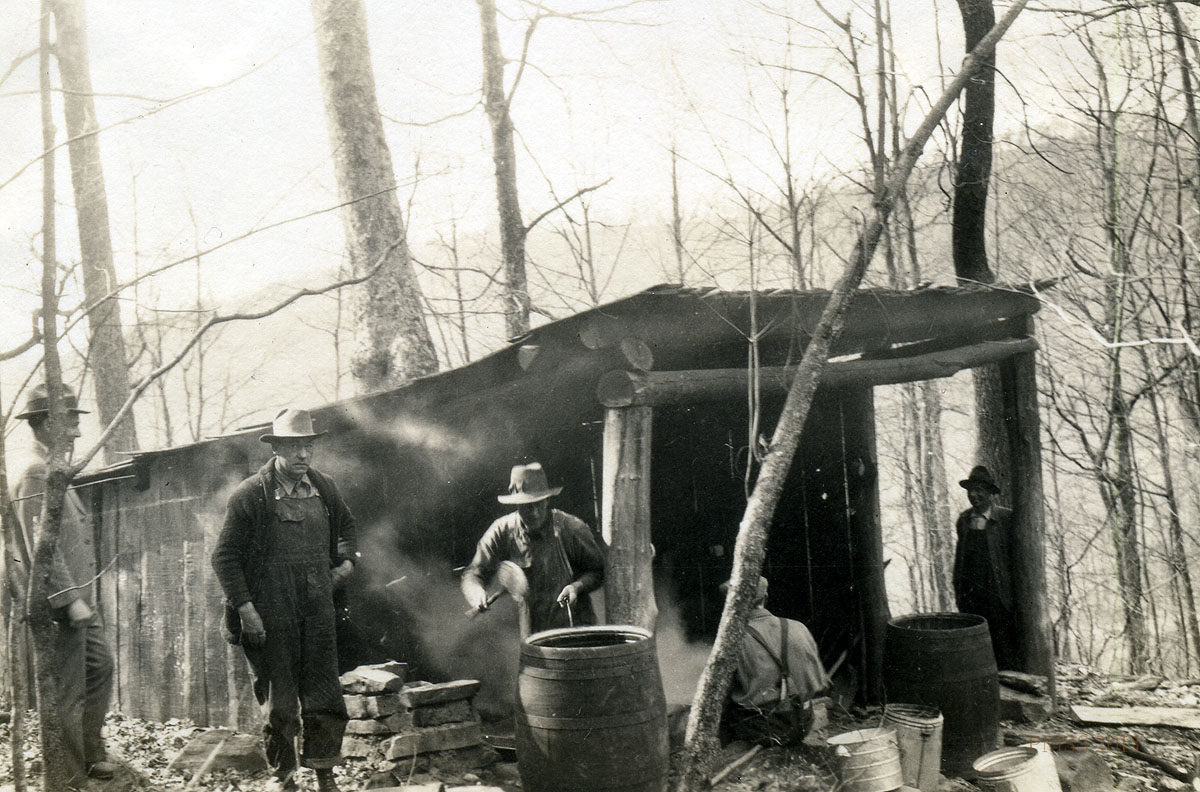
“Bill Creech, Gib Lewis, Columbus [Creech], Henry [Creech] Stir-off.” Maple sugar stir-off at the maple sugar camp. [kingman_071c.jpg]
10
…prosperous homestead. All the nine children of this family were grown and away from home, the older ones married, two of the younger ones in the army. Mrs. Lewis [Arwilla Lewis ?] was a woman of rare dignity, with strength and composure in every line of her beautiful melancholy face. She was very lonely, for as she said, “A body looks for young uns to go off when they’ve married, but it hurts when they go away from home if hit ain’t for that. An’ yet you can’t blame them, but ‘pears like my youngest’s goin’ off hurt me the worst of any.” She unlocked the trunk to show us the trinkets the boys had sent her from Porto (sic) Rico and the Philippines, and to get out pictures of them, a fine looking lot of children.
REV. LEWIS LYTTLE
At this house Mr. Lyttle [Rev. Lewis Lyttle] joined us, to guide us across the mountain the next day, because the trail was so poor that we probably could not find it alone. We sat around the fire where the enormous logs were burning, rings of yellow pumpkins drying for winter above our heads — till late that night; and Mr. Lyttle sang old hymns for us, “If you love your mother — meet her in the skies,” or joined Mrs. Lewis’ beautiful, shy, little granddaughter in some more modern hymns such as “Jesus is a Rock.” This was a household inclined to disapprove of “song ballets (sic),” though it hardly considered them “devil’s ditties,” as do many of the old-time Baptists.
The next day was a rare one, for our guide was an inimitable story-teller, and could take off the mannerisms and the sing-song chant of the old-fashioned mountain preacher to perfection. We shall never forget his tales, or the unanswerable argument of the old preacher who declared a child of God could not fall from grace, “for what if the enemy does say, brethring, ‘if ye fall from grace,’ — you all know, bothring, that it is an impossible verb an’ in the everlasting tense.” Just at the point where three counties, Harlan, Leslie and Perry, meet, Mr. Lyttle dropped his character of entertainer, and told us he wanted to have a little service right there where we could see the blue line of Pine and Black and all the gorgeous colorings of the interlying hills. He took out his little pocket Testament, read us the Sermon on the Mount, and then sang for us the old sweet songster hymn, “I’m Dwelling on the Mountain.” Then we followed the trail straight along the top of the ridge for five miles before we descended to the waters of Leatherwood.
Mrs. Singleton was glad to see us, for as she said, “She viewed it out that we was confidential persons, traveling about for the benefit of the county.” For this reason she refused to accept any pay for our fare or our horses. Here, also, we sat long about the fire, and were much pleased at Mrs. Singleton’s frankly expressed opinion that “You ‘pear jest as natchelly — I wouldn’t keer if you was to stay all winter.” But here where we…
Page 11. [delong_ltrs_annual_011.jpg]
11
…were within a day’s journey of Hindman, we felt as if our duties were just “yon side the mountain” and were calling loudly. So before sunrise the next morning we had got our wagon once more and were started back to Hindman, while the sun was making splendors of the mountain mists. Yet even as we watched the beauty of the lifting fog we were glad to remember that in the Pine Mountain country the day dawns without the mists that make it impossible for us in our lower hills to tell before ten o’clock most mornings of the year whether it will “fair off” or not. As we got back that night to the cheer of our home, and to our ninety-five boys and girls — in the midst of our pleasure was the thought of how to bring such a school as this one at Hindman to the hospitable, kindly, longing new friends of ours.
It is this question that we want you to help us answer.
Yours sincerely,
ETHEL De LONG
Please do not let any of this get into print.* [written at bottom of letter]
*[Now well over 100 years later the editors of this web account believe that Ethel de Long and Katherine Pettit and Uncle William and all the other forward thinking folk mentioned in this narrative, would be proud of the telling of their story.]
Return To:
DEAR FRIEND LETTERS Index

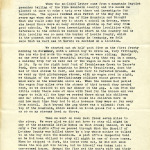
![DEAR FRIEND LETTERS 1911 [Hindman undated]](https://pinemountainsettlement.net/wp-content/uploads/2014/11/delong_ltrs_annual_002-150x150.jpg)
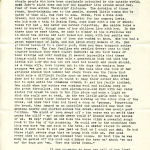
![DEAR FRIEND LETTERS 1911 [Hindman undated]](https://pinemountainsettlement.net/wp-content/uploads/2014/11/delong_ltrs_annual_004-150x150.jpg)
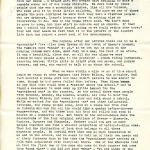
![DEAR FRIEND LETTERS 1911 [Hindman undated]](https://pinemountainsettlement.net/wp-content/uploads/2014/11/delong_ltrs_annual_006-150x150.jpg)
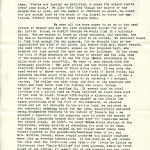
![DEAR FRIEND LETTERS 1911 [Hindman undated]](https://pinemountainsettlement.net/wp-content/uploads/2014/11/delong_ltrs_annual_008-150x150.jpg)
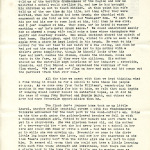
![DEAR FRIEND LETTERS 1911 [Hindman undated]](https://pinemountainsettlement.net/wp-content/uploads/2014/11/delong_ltrs_annual_010-150x150.jpg)
